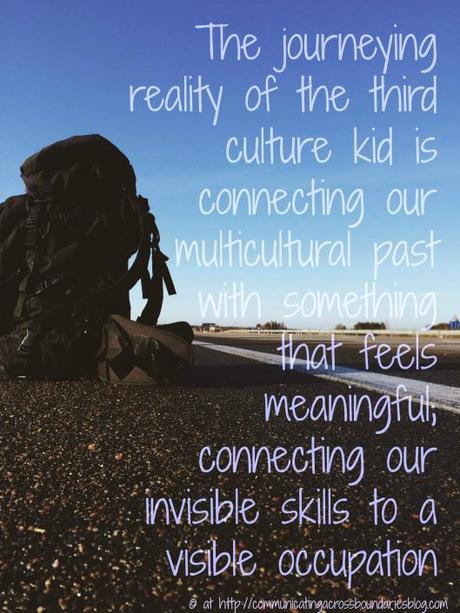 I felt angry at the person speaking. She was speaking about “My Pakistan”. What right did she have to speak about something that was ‘mine’? Except that Pakistan is not mine. Nor is Egypt.
I felt angry at the person speaking. She was speaking about “My Pakistan”. What right did she have to speak about something that was ‘mine’? Except that Pakistan is not mine. Nor is Egypt.
My places become like my possessions.
I’ve talked with expats and TCKs I’ve realized how much the places we love become like our possessions — yet they aren’t. We belong to these countries but they don’t belong to us. As much as I want the phrase to be “my Pakistan” or “my Egypt” and as much as I use it — they don’t belong to me. These places that I love are not my possessions. And therein is one of my problems as an adult third culture kid. I take on an exclusivity when it comes to places I love. I become arrogant when I hear others talk about them. I scream at television networks as blonde lovelies speak nonsense about parts of the world where they’ve never been.
Can I be okay with the irony that they don’t belong to me but I belong to them? Is it that home has moved so much that we cling tight to our past connections?
Possession in the dictionary a defined as “the state of having, owning, or controlling something.” Is it truly loving a place when we want to own the rights to it? And how do we release our hold on our ‘places’?
Perhaps another question is this: How does our hold on our ‘places’ affect where we now live. Mokokoma Mokhonoana, a South African activist and social critic says “We preoccupy ourselves with what we had — or what we want to have — at the expense of what we have.”
I think a lot of this is about finding our niche. How does our past fit with our present? How can we take the places we’ve loved and the experiences we’ve had and use them in our current reality?
The journeying reality of the third culture kid is connecting our multicultural past with something that feels meaningful. Connecting those invisible skills to a visible occupation. And each journey is unique. While one third culture kid may end up a diplomat, another may live on a farm in Germany milking goats and living off the land. Both have found their niche.
The greater connection we have to our present place and space the more willing we are to release our hold on our past, giving up our jealous guard and exclusive rights to possess our places.The more I’m willing to let go, the more seems to come back to me. If I hold out my hand and let God pry my tight fist open, my palm is outstretched ready to accept what he offers.
It’s in this context that I announce a new series on Communicating Across Boundaries. The series is called “Finding Your Niche”. I am asking for submissions to this series from third culture kids. I want to hear stories about connecting a multicultural past to a current reality. How did you find your place? How do you link your past to your present? What tips would you give those who are on this journey?
The series begins next week and will run every Tuesday. Email inquiries and submissions to communicatingblog (at) gmail (dot) com. There is no payment but there is my deep gratitude, the gratitude of many other third culture kids who are in this process, and social media link-up through Facebook, Twitter, Tumblr and Google Plus.
I look forward to hearing your story, the story of how you found your niche.


